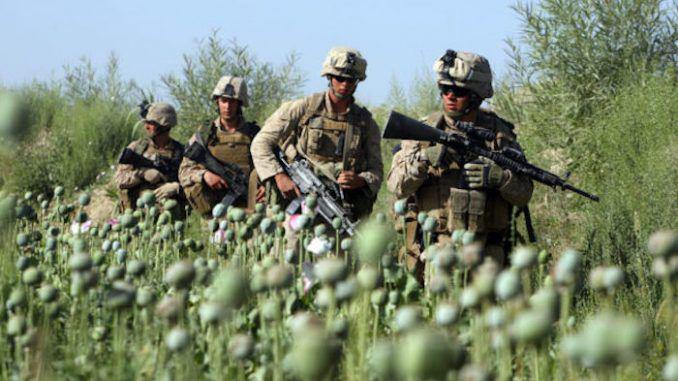Larijani, who attended an international conference called “Lawmakers Against Drugs” in Moscow, told reporters that all countries must be sensitive in this regard. He emphasized that Iran has paid a lot of costs in this fight with about 4,000 martyrs and 13,000 who sustained injuries.
“But the important point is that NATO does not take any responsibility in Afghanistan, and we emphasize that Iran and Russia should follow this up. We also expect the United Nations to play its important role properly,” ICANA quoted Larijani in a Farsi report.
He added that at the conference the UN representative gave a report on drugs, but the issue is that the United Nations is not a study centre to describe issues, it must make decisions and get involved.
“In Afghanistan, drug production has increased 45-fold since 2001 reaching from 200 tonnes to 9,000. The number of laboratories has also increased in the country. It is unacceptable to say that NATO cannot cope with this situation in Afghanistan. The supply of narcotics is not carried by the asses, but their cars cross different countries and they are seen on the route. This is like the case of oil smuggling by ISIS in Syria under the nose of US agents.”
Iran, Russia Exchanging Intelligence on Illicit Drugs
Larijani also noted that the cooperation between Tehran and Moscow in the fight against drugs is in a right direction. He said intelligence officers are exchanged between the two countries, and this is particularly suited to tracing smugglers and hitting them.
“The cooperation between Iran and Russia in the fight against terrorism has made good progress too, and that ISIS suffered serious losses in Iraq and Syria, was partly related to Iran-Russia collaborations, and it will continue in other areas,” stated Larijani.
MPs from over 40 countries attended the event, which comprised a plenary conference meeting on December 4 morning, at which State Duma Speaker Vyacheslav Volodin, the heads of the member states’ parliaments and the chairmen of relevant committees spoke. Russian Foreign Minister Sergey Lavrov, Interior Minister Vladimir Kolokoltsev, and Health Minister Veronika Skvortsova also attended the conference.
The conference was followed in three sections in the afternoon. The first one was devoted to the improvement of anti-drug laws and the second, to drug addiction and modern approaches to rehabilitation, while the third section will focus on the role of non-profit organizations in the war on drugs, according to TASS.
